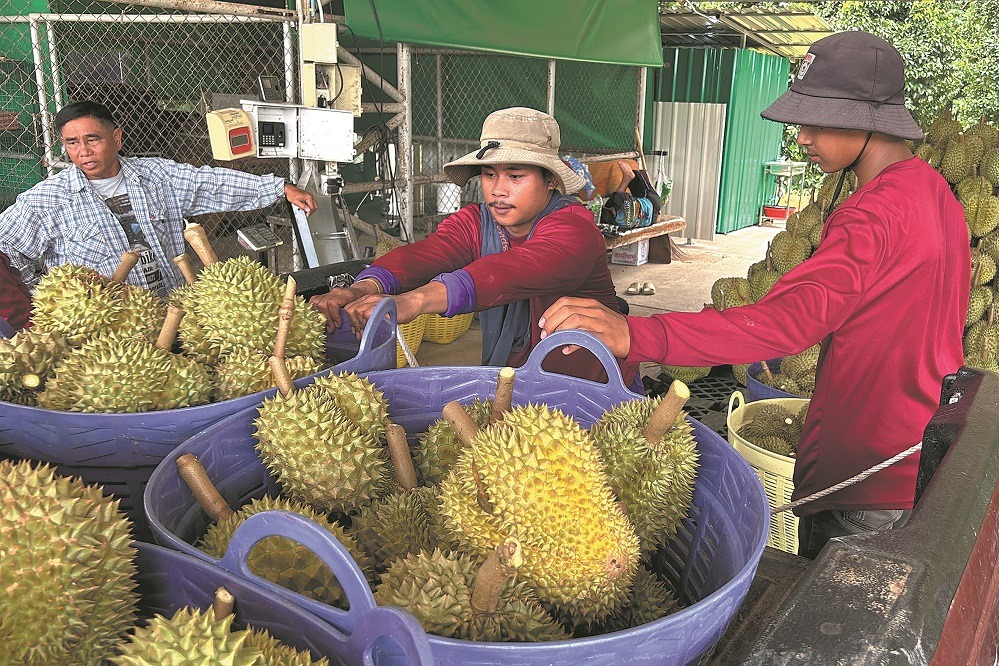US farmers bemoan China tariffs
By Ai Heping in New York | China Daily USA | Updated: 2018-04-03 11:01
US providers of pork, ginseng, wine and more brace for bumpy road ahead
Sioux County, Iowa, is home to just 34,000 people, but more than 1 million hogs.
Marathon County, Wisconsin, has a population of 135,868, and is home to 180 growers of ginseng.
On Monday, ginseng and pork were among 128 US goods that China said will get new tariffs in response to US tariffs on steel and aluminum that took effect last week.
Ginseng and 119 other products - including fresh and dried fruits, nut products, wine and modified ethanol - face 15 percent tariffs. Pork and pork products and recycled aluminum are among eight products that will get slapped with 25 percent tariffs.
Agriculture forecasters say the impact of Monday's move should be limited and noted that China also avoided - at least for now - adding a tariff on US soybeans, the United States' most valuable agriculture export to China at $14 billion annually.
They also said that if the tariffs imposed on Monday last, they will add to US farmers' woes.
US Department of Agriculture statistics indicate that while farm income has been cut nearly in half in the past four years, farm debt has increased by more than a quarter - with projections that it could surpass $390 billion in 2017, the highest level since the farm crisis of the 1980s.
If the tariffs persist, analysts expect that farmers in Iowa, Wisconsin and other farm states will use their significant political influence in November's midterm elections.
In 2016, more than 75 percent of rural voters in the Farm Belt cast their ballots for Donald Trump.
Of the nearly $20 billion of goods sent to China in 2017, the American pork industry sent $1.1 billion in products, making China the No. 3 market for US pork. Iowa is the nation's largest pork producer.
Neil Dierks, CEO of the National Pork Producers Council, said in a statement on Monday that the US and China were still negotiating and "we are hopeful that the 25 percent tariffs on pork will be short-lived".
"Just prior to the duty, hog production in 2018 was at breakeven (and with) the reduction in futures prices, if they last, will cause 2018 to be a loss-making year for most producers," Dermot Hayes, an Iowa State University economist, said in an email.
"If [pork] exports to China just decrease but do not vanish, that would soften the blow. A 25 percent tariff would be a big increase in the US pork price in China, so I would assume that the shock would be significant," North Carolina State University Professor John Beghin wrote in an email.
In the spring of 2017 in Eagle Grove, Iowa, family-owned Prestage Farms broke ground to construct a pork-processing plant in anticipation of exporting its products to China.
Ron Prestage, president of the company, told China Daily on Monday that the tariff on pork and other agriculture products "is counterproductive to the best interests of both China and the US".
"Let's hope that sanity prevails and this proves to be a short-lived issue," he said.
Iowa also leads the nation in another product on the Chinese list for new tariffs: ethanol.
China proposes increasing an existing 30 percent tariff on the fuel by an additional 15 percent. Iowa shipped a record 4.2 billion gallons of the renewable fuel last year. About half of Iowa's corn production is used to make ethanol and dry distiller's grain, a feed for livestock.
As for ginseng, exports to China are worth $30 million a year to Wisconsin's growers. Almost all of the state's ginseng is grown in Marathon County. Trump won Wisconsin with 47.2 percent of the vote, or about 23,000 votes. More than half of that support - 12,741 - came from Marathon County.
Jim Schumacher, 47, is one of the county's ginseng growers.
"Obviously we are very disappointed and definitely not happy about (the announcement). We don't see the benefit in tariffs and it doesn't accomplish anything, it's just going to hurt a small industry that has nothing to do with the whole thing at all," said Schumacher.
For California, wine exports to China have seen 10 percent growth to more than $210 million in 2017, according to the California Wine Institute.
The 15 percent added tariff will increase the total tariff and tax paid on a bottle of US wine imported into China from 48.2 percent to 67.7 percent, according to the USDA.
Paul Welitzkin in New York, May Zhou in Houston and Lia Zhu in San Francisco contributed to this report.
aiheping@chinadailyusa.com
























